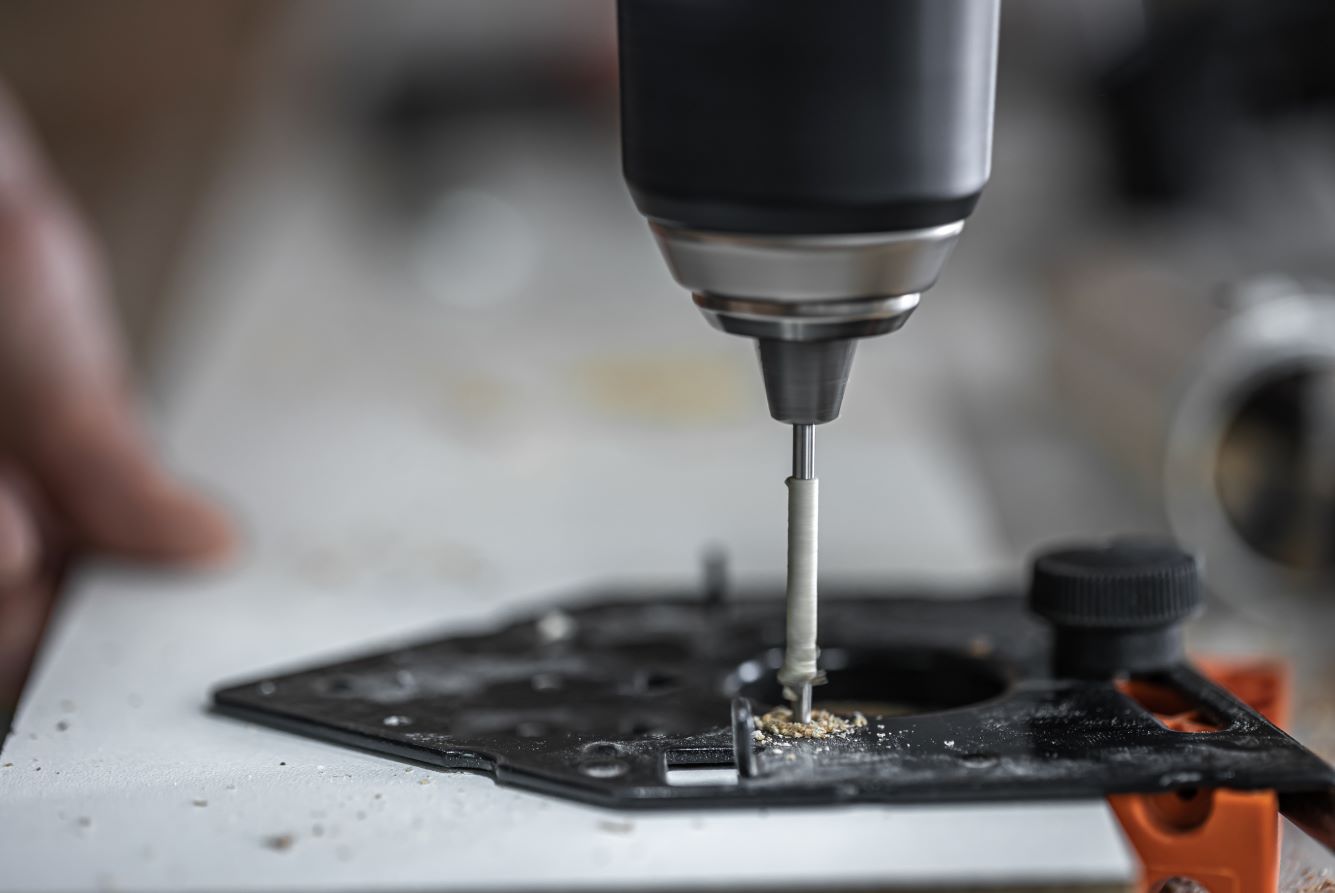

If you are a DIY enthusiast who loves working with metals, you probably have encountered the difficulty of making holes in hard metal. It is not an easy feat, but with the right tools and techniques, you can make perfect holes in any type of hard metal, whether it’s aluminum, steel, or something else entirely.
This article will give you 5 metal drilling tips to help you make holes in hard metals like a pro!
A drill press is a must-have if you often work with metals and other materials. This press allows for precise drilling and provides stability when drilling. Drill presses are made to handle different kinds of metal.
Less powerful drill presses are sufficient when working on softer metals. However, hard metals like cast iron and hardened steel require powerful drill presses that can manage the extra torque.
Most drill bits are made using high-speed steel and can drill effectively through most metals, including other materials like plastic and wood. However, if you need to drill holes through hard metals, you will require a different bit.
Drill bits made from cobalt blend or black oxide are most suited for hardened metals. Bits made from black oxide are of superior quality and last 50% longer than high-speed steel (HSS).
Although a bit pricey, these drill bits have an extra 5 – 8% cobalt, making them more resilient, sharper, and heat resistant.
Some people don’t find it necessary to use a lubricant when drilling softer metals. Drilling hard metals require cutting oil or a multi-purpose oil for lubrication. Lubrication makes the metal drilling process easier and helps your bits remain sharp by reducing friction and keeping the bits cool.
A pilot hole is a small hole you drill before making the actual hole. The pilot hole helps to ensure that your bit doesn’t wander when you start drilling the larger hole. It also helps to prevent the bit from slipping and breaking.
When making a pilot hole, use a smaller bit than the one you plan on using for the final hole, and drill slowly. This will make it easier to drill the larger hole and get a clean, accurate result.
Setting the right speed and applying the appropriate downward pressure when drilling is vital. The rule of thumb in drilling is to slow it down as much as possible.
Going with lower speeds of up to 3000 RPM for smaller bits and 1500 RPM for larger bits will ensure you don’t damage your bits and that your drilling is accurate.
Also, as you drill slowly, apply a downward pressure that is firm and steady enough to produce long shavings. If you are getting tiny shavings or dust particles, it’s a sign that you are not applying enough pressure or that the drill tip is dull and in need of re-sharpening.
Drilling holes in hard metals is not as difficult as it may seem. By using the right tools, lubrication, and technique, you can achieve perfect holes without any trouble. Remember to take your time when drilling and to apply firm and steady pressure for the best results.
If you need help with any project that requires drilling through hard metals or have any questions, feel free to contact New Mexico Metals LLC. We are the leading experts in this field and would be happy to offer our assistance. Contact us today for all your metal drilling needs!